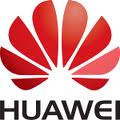 This is bit technical. According to latest research blog by Nokia Siemens Networks, Android Smartphone using VoIP cause network congestion, due to 600{af589cdba9d77786c8c861317dbad60bba1e2ebbf56e2ffab874a1b59fde9ce3} more signaling traffic generated by these Smartphone on 3G Network.
This is bit technical. According to latest research blog by Nokia Siemens Networks, Android Smartphone using VoIP cause network congestion, due to 600{af589cdba9d77786c8c861317dbad60bba1e2ebbf56e2ffab874a1b59fde9ce3} more signaling traffic generated by these Smartphone on 3G Network.
In other words, if you are using Skype, Google Chat, Nymgo, Nimbus etc for calling your friends from Android Smartphone on 3G networks it causes more network congestion as compared to Apple & Nokia Smartphone.
The blog cites this as a device (Android Device) issue claiming that due to feature called ‘propriety device- controlled Fast Dormancy’ these Android Smartphone generate 600{af589cdba9d77786c8c861317dbad60bba1e2ebbf56e2ffab874a1b59fde9ce3} more signaling traffic during a VoIP call on 3G Network. This has been tested during Skype call on Samsung devices using Android as compared to Nokia Phones & Apple iPhones.
So what’s solution then? Or are we really bothered about Network congestion at user level? Not actually, but as per Release 8 specifications of 3GPP (3G Specification Version), radio access technology (3G) need to support a feature called ‘Network Controlled Fast Dormancy’ to reduce signaling traffic from Smartphone which will help to improve battery life time. As per calculations, iPhone & Nokia N8 last two hour longer during a VoIP call on 3G.
In fact, these impressive results have recently convinced a number of device manufacturers using an Android operating system (OS) or a Blackberry OS to step back from proprietary device driven Fast Dormancy and move on to standardized Network Controlled Fast Dormancy. The blog also states that, a European mobile operator that had enabled NCFD-featured WCDMA by Nokia Siemens Networks in its network was able to reduce the network signaling load by 30{af589cdba9d77786c8c861317dbad60bba1e2ebbf56e2ffab874a1b59fde9ce3} after 6 months of operation, while data traffic continued to grow.
Android device manufacturers; are you listening?





